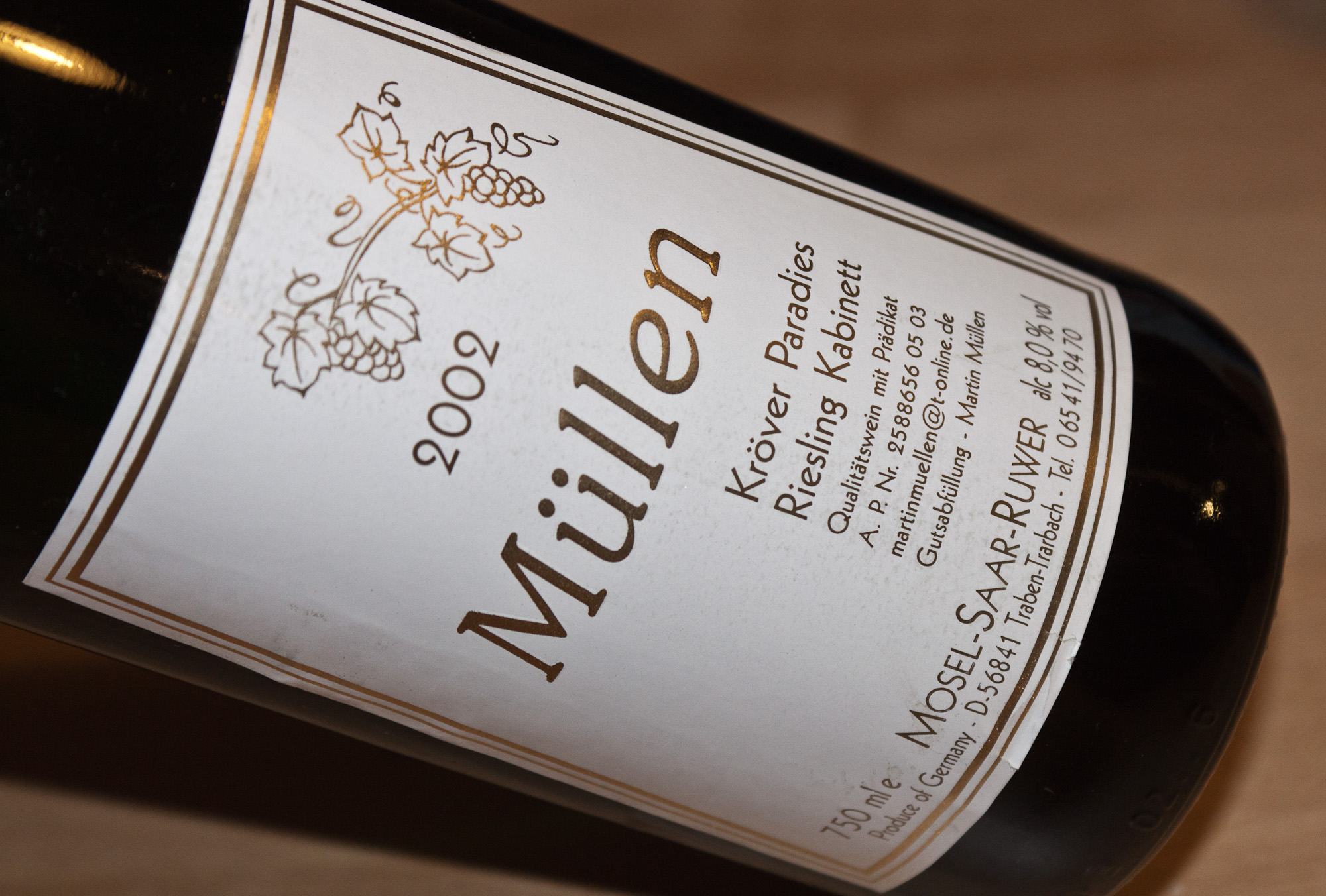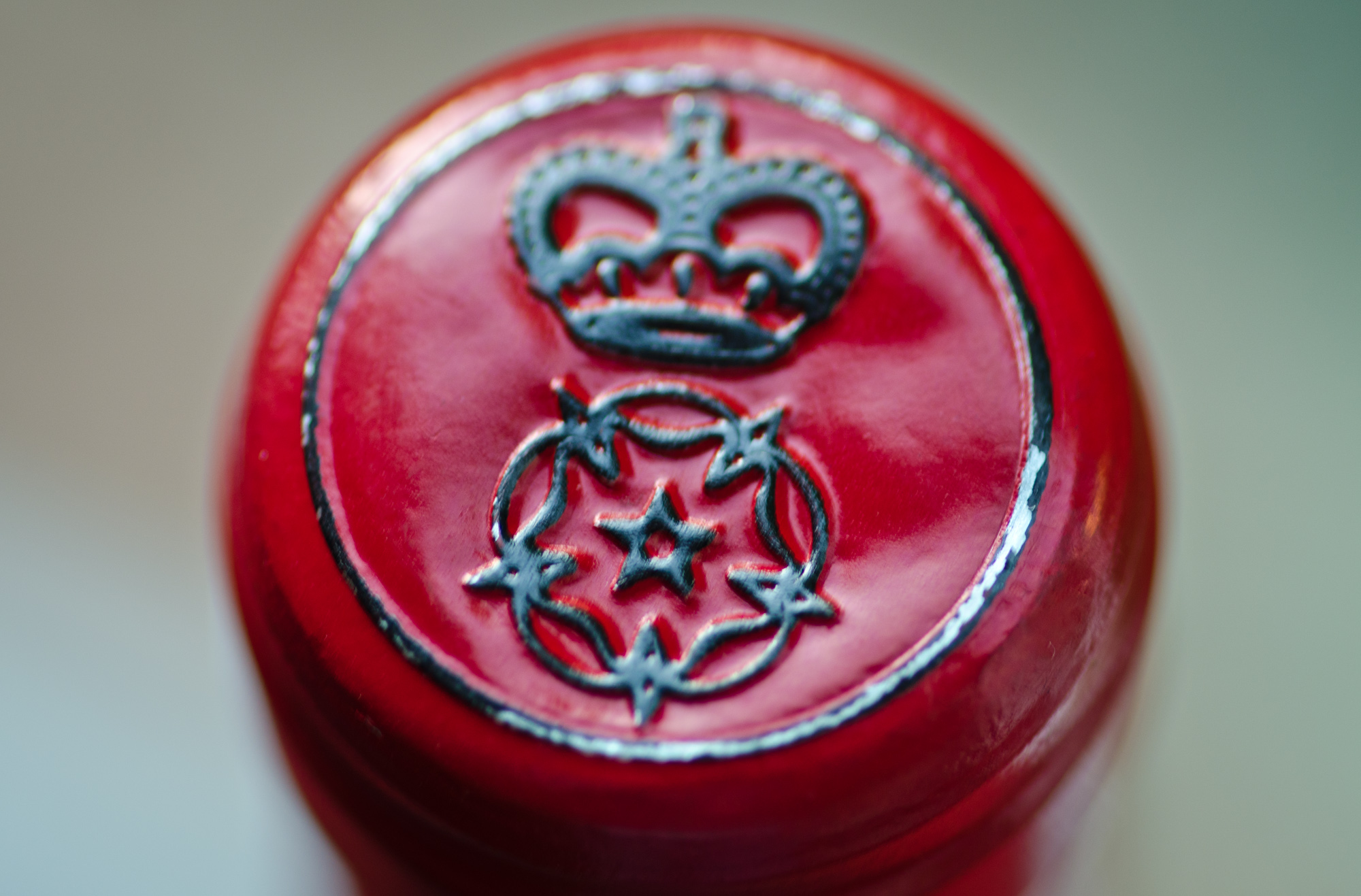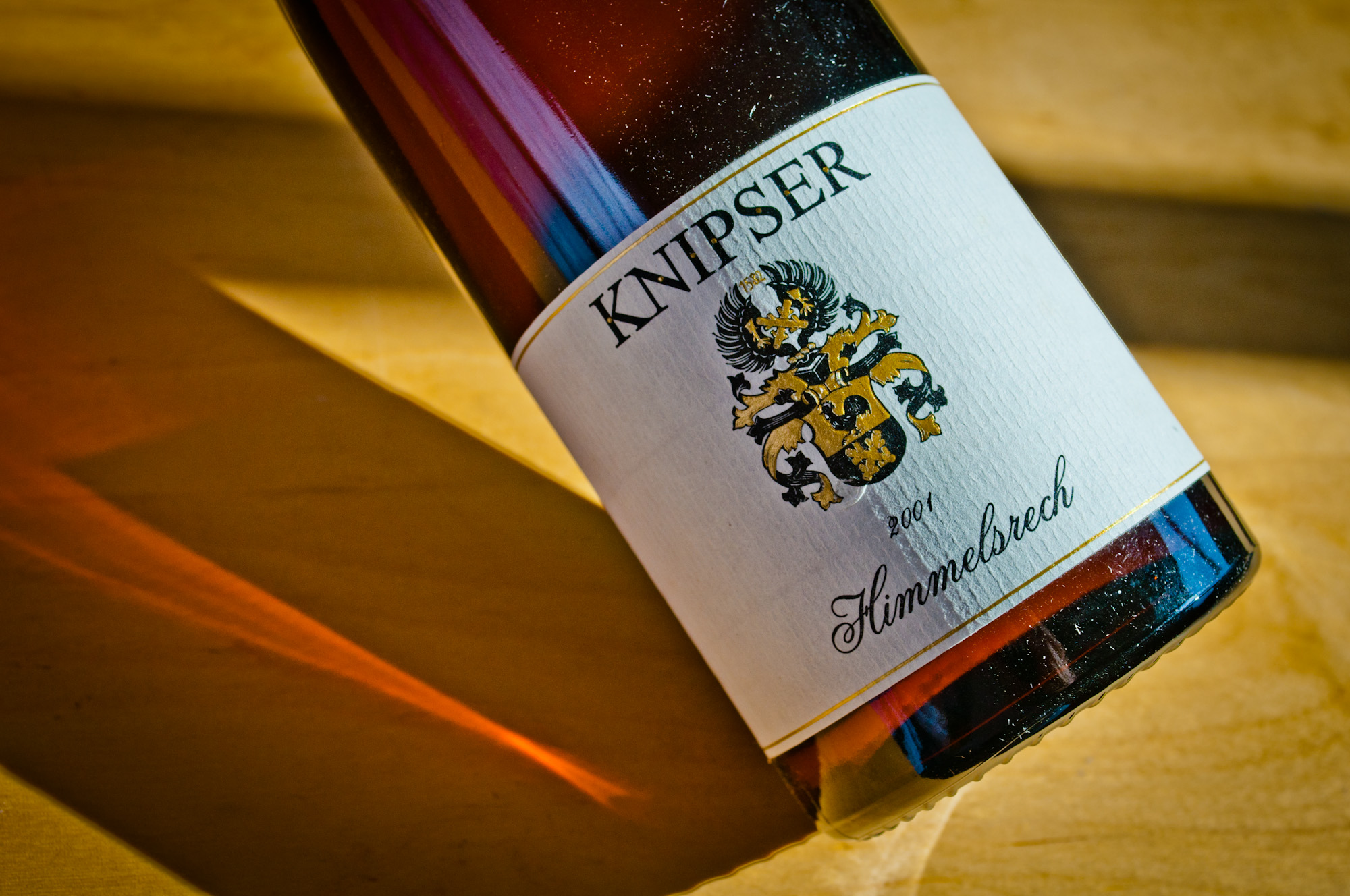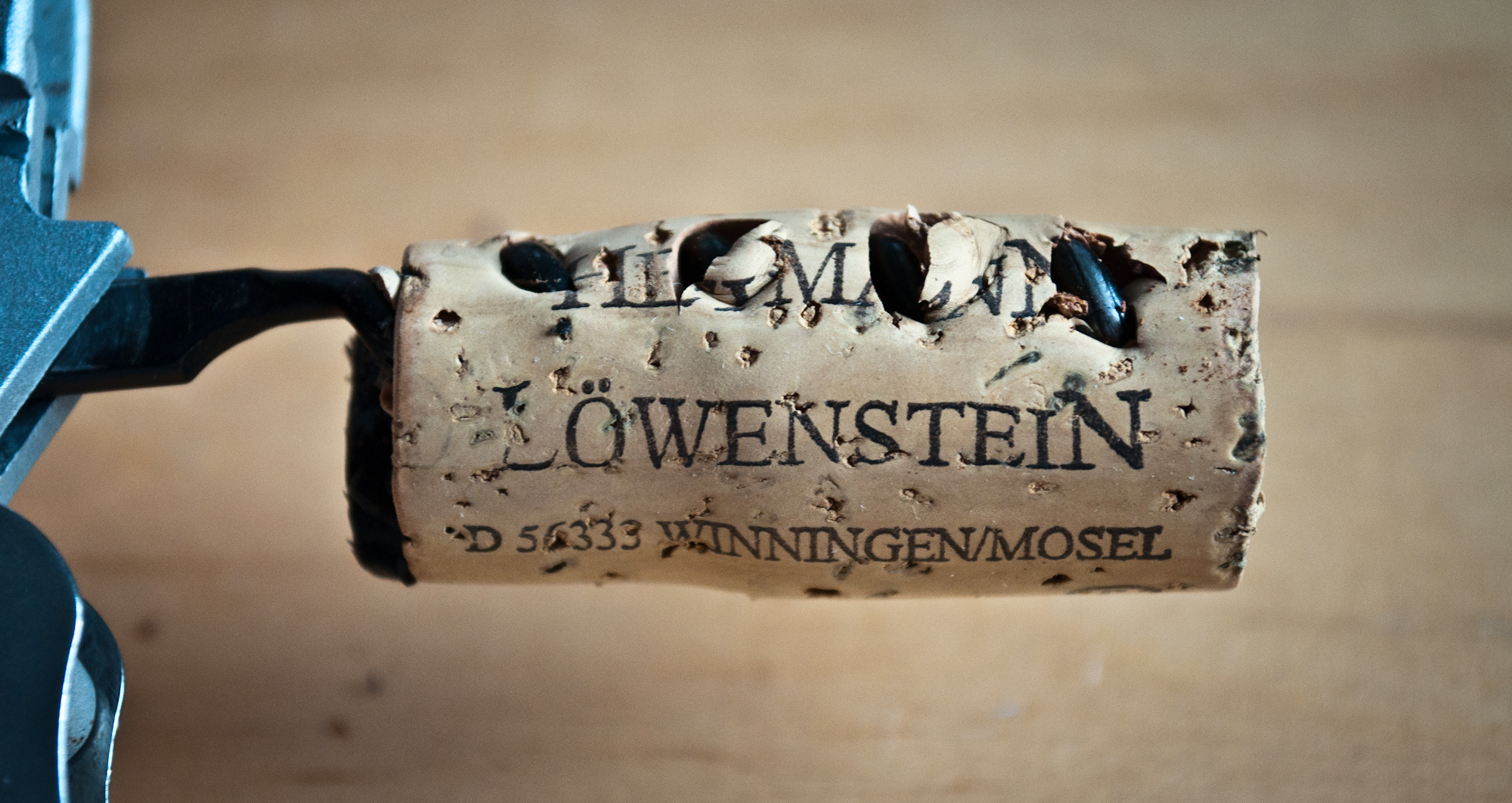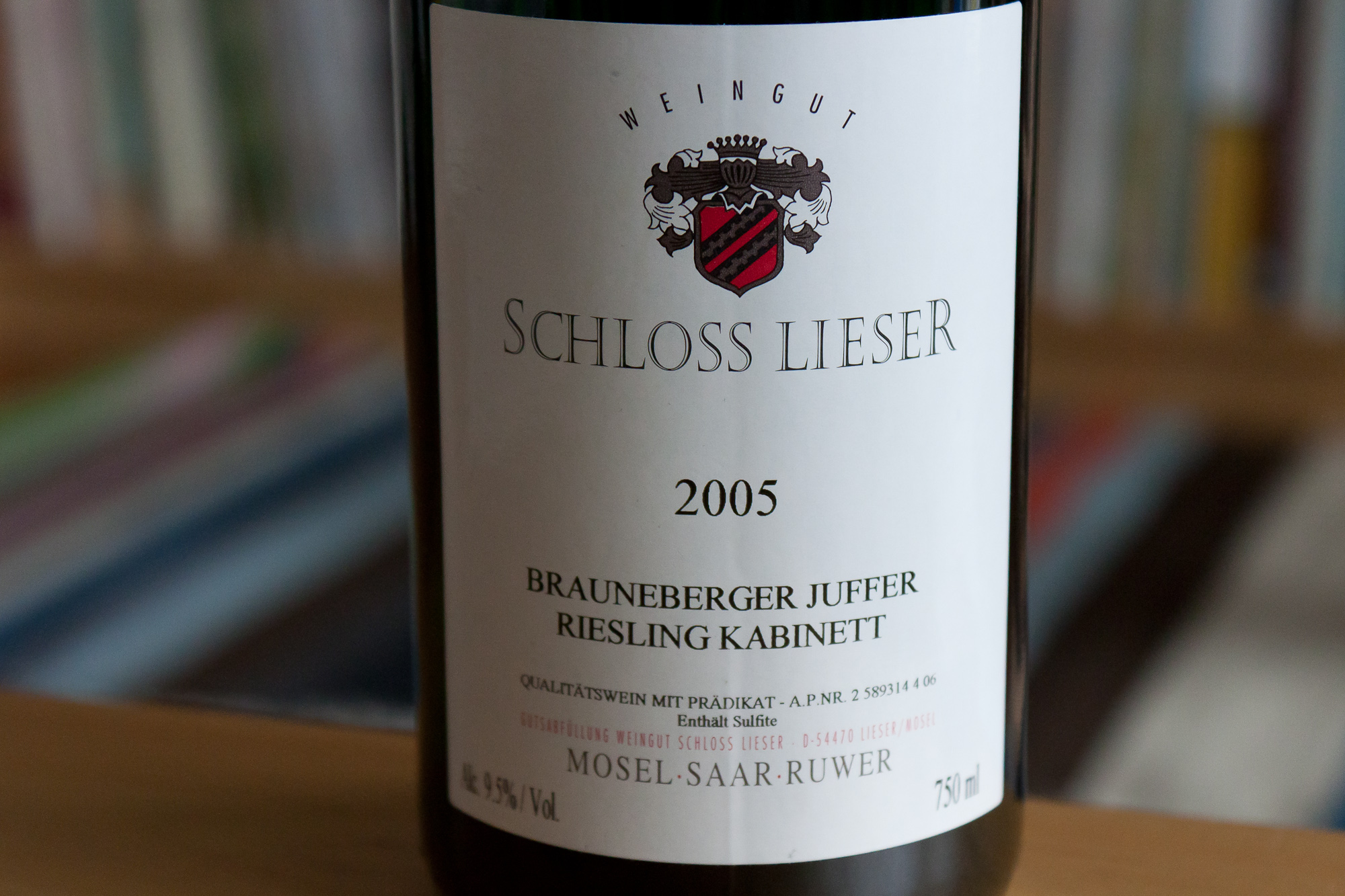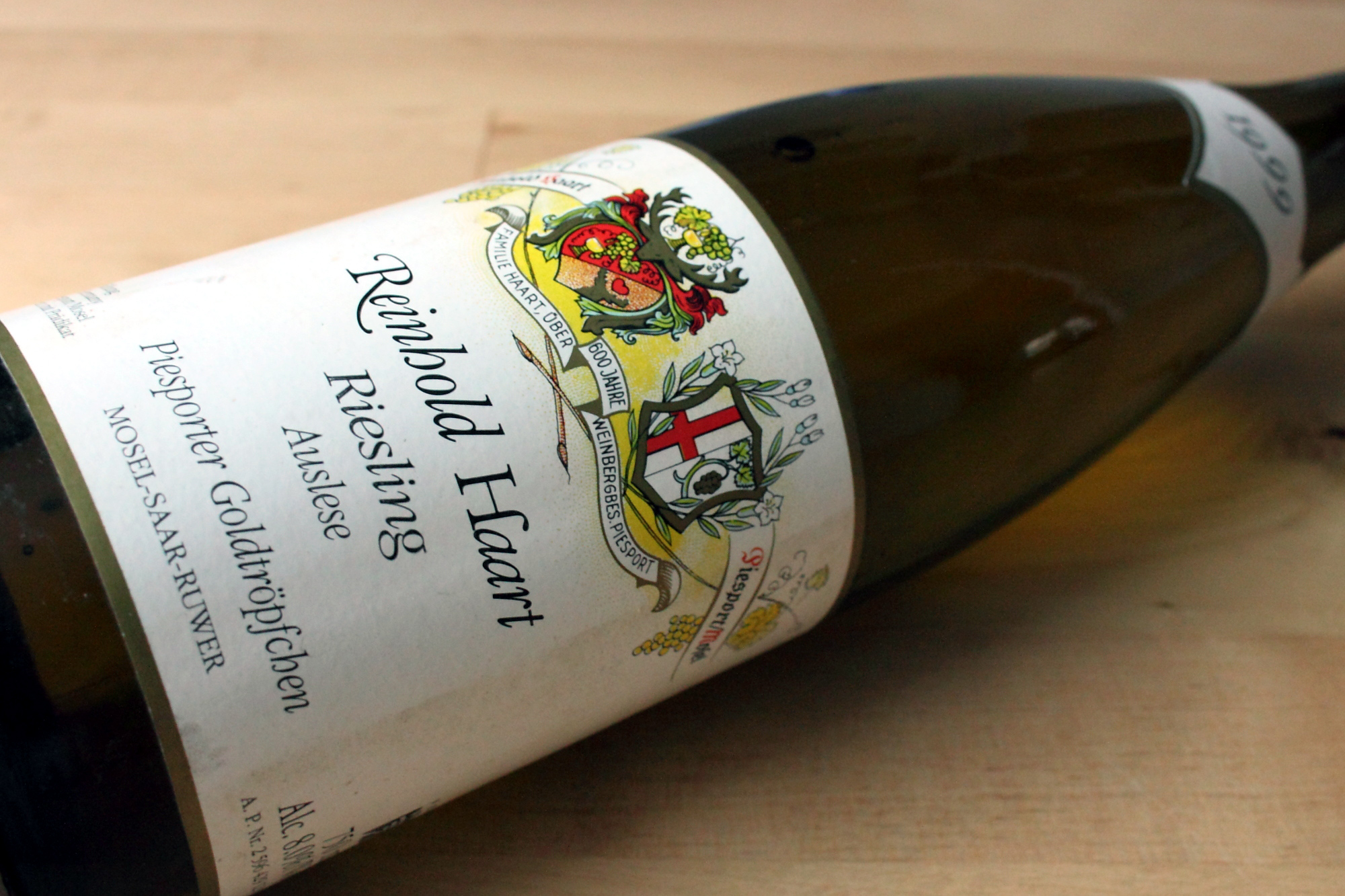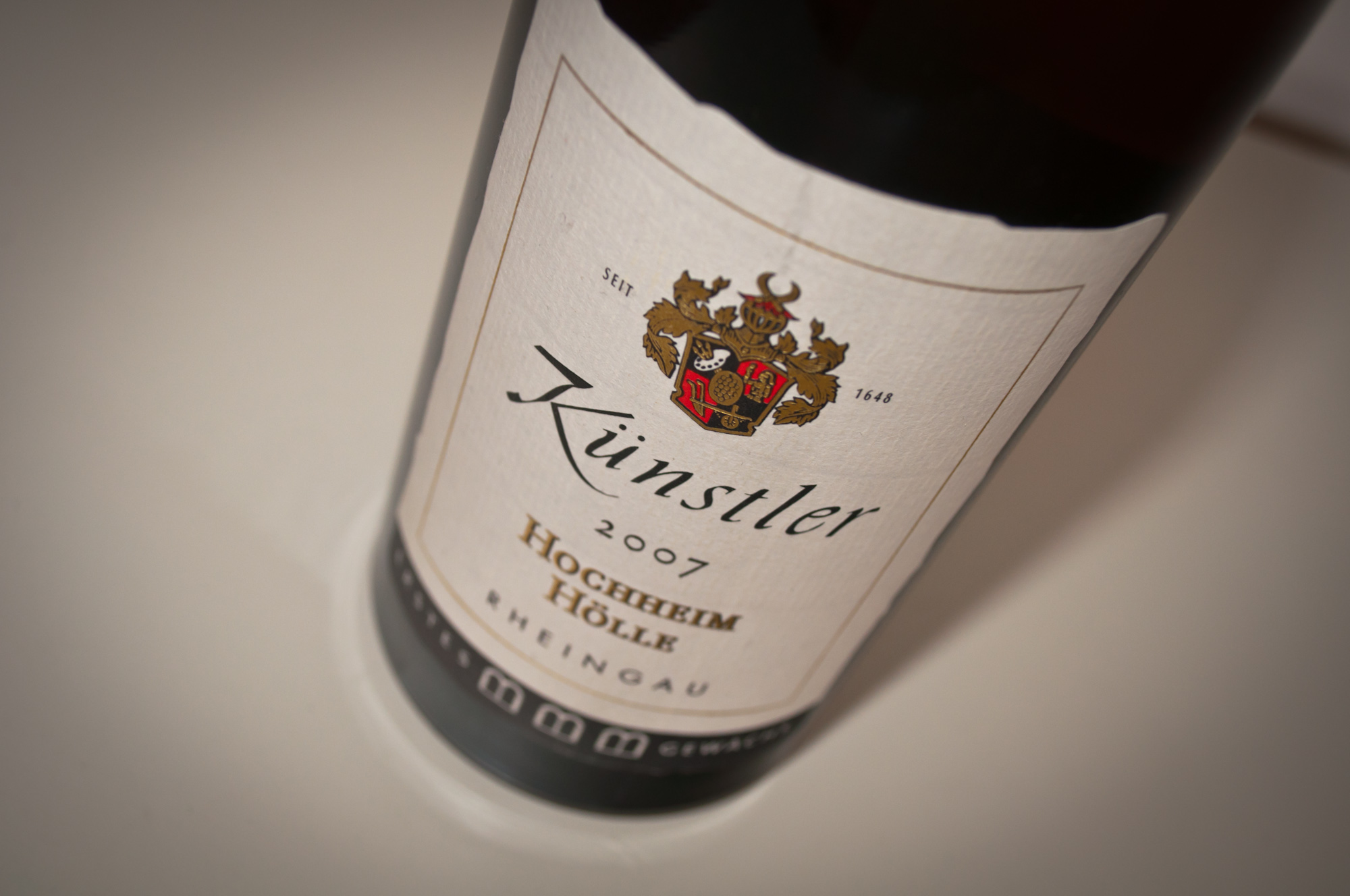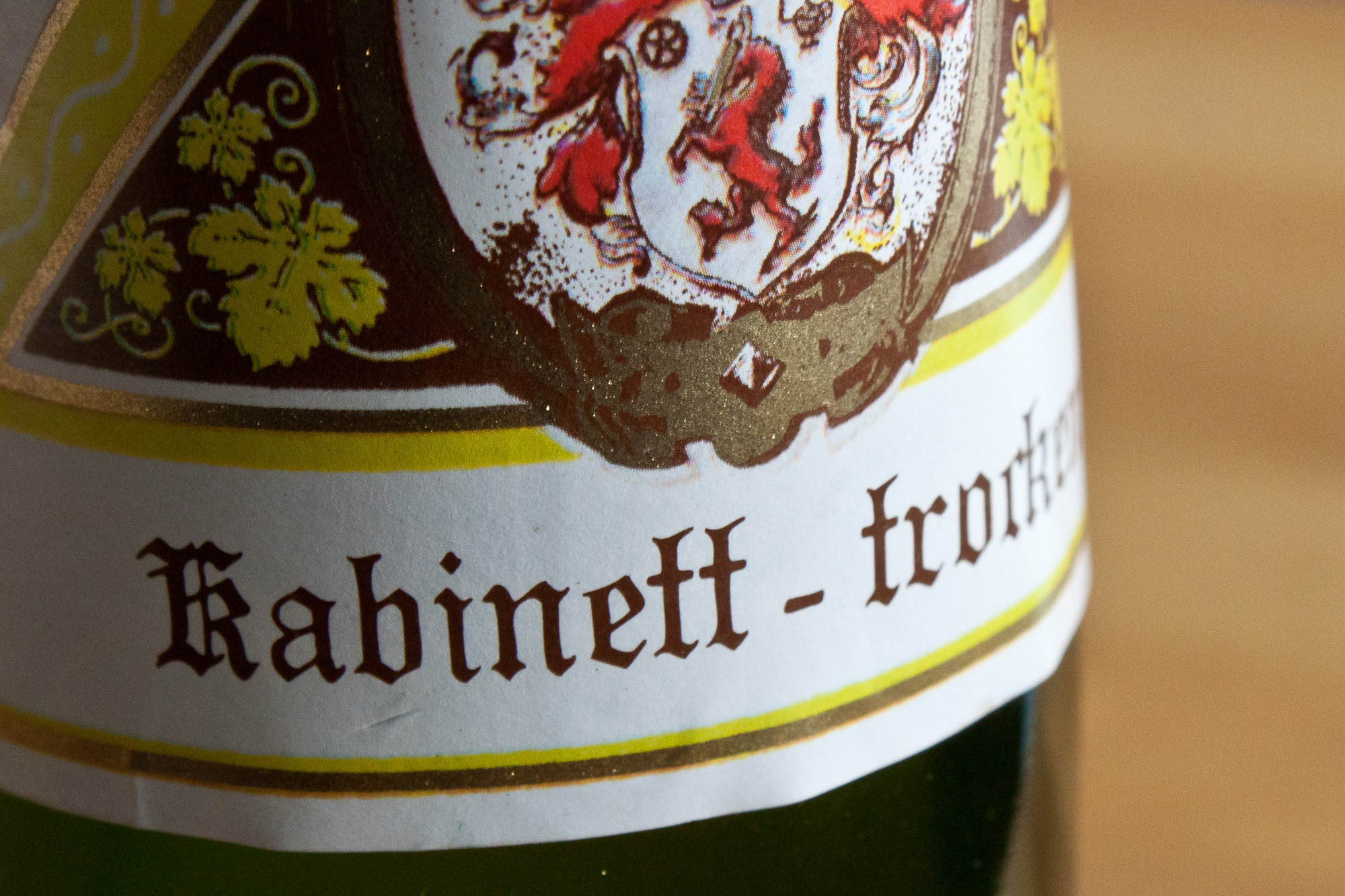Lucashof, Forster Pechstein, Riesling Spätlese trocken, 2000
Sometimes before going to bed I browse the websites of wine merchants and dream what I could order if only I had a proper wine cellar store wine long term (or, depending on the wine, a larger purchasing budget). During one of those sessions I came across a wine that seemed like the ideal solution to both problems: at over ten years of age it would not need more cellaring and at €9 it would not put a strain on my budget - considering the age it was a bargain.
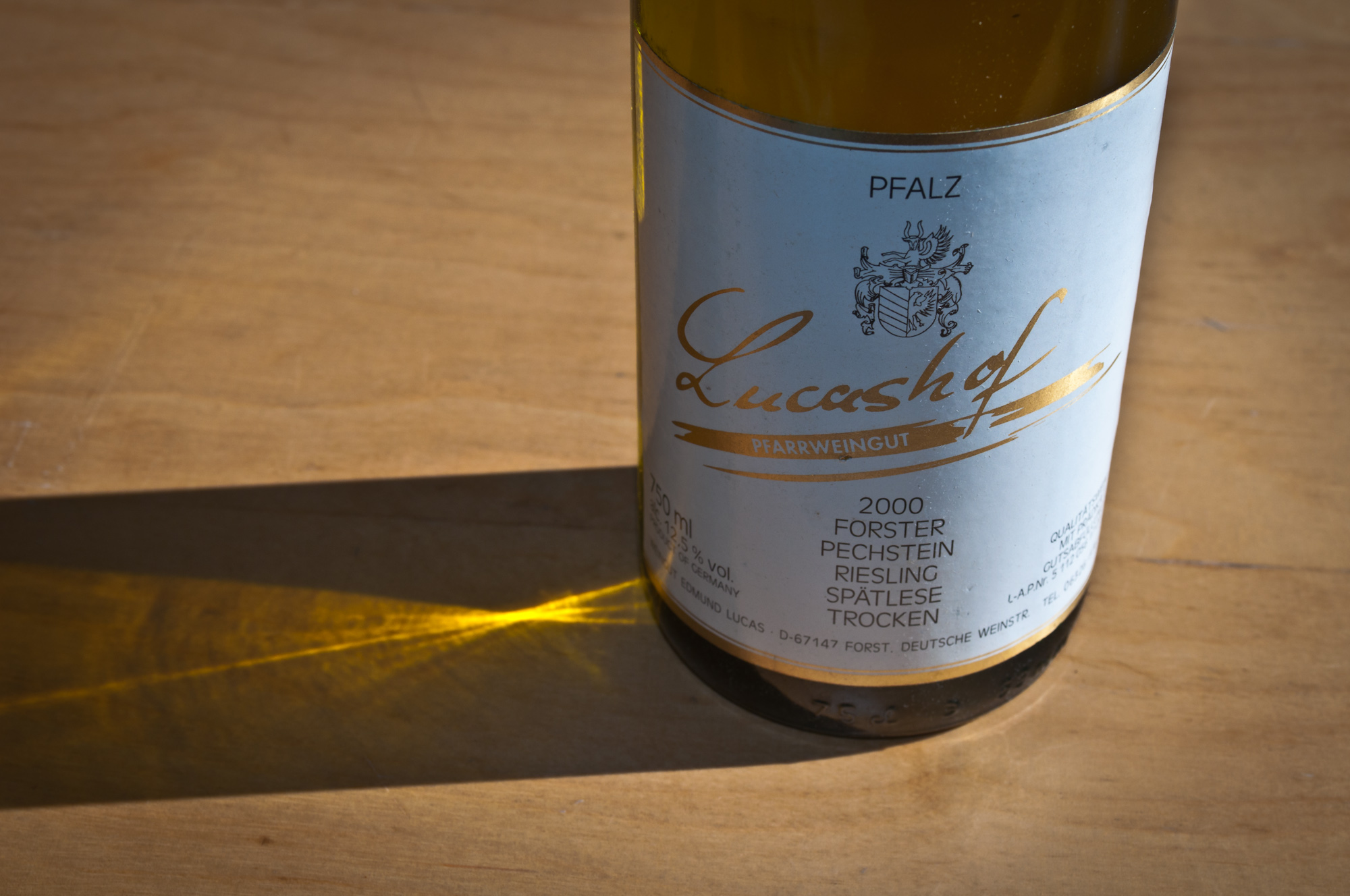
I had heard of the Lucashof winery before, so I was curious to find out what one of their aged dry Rieslings (and from a well-know vineyard) would taste like.

